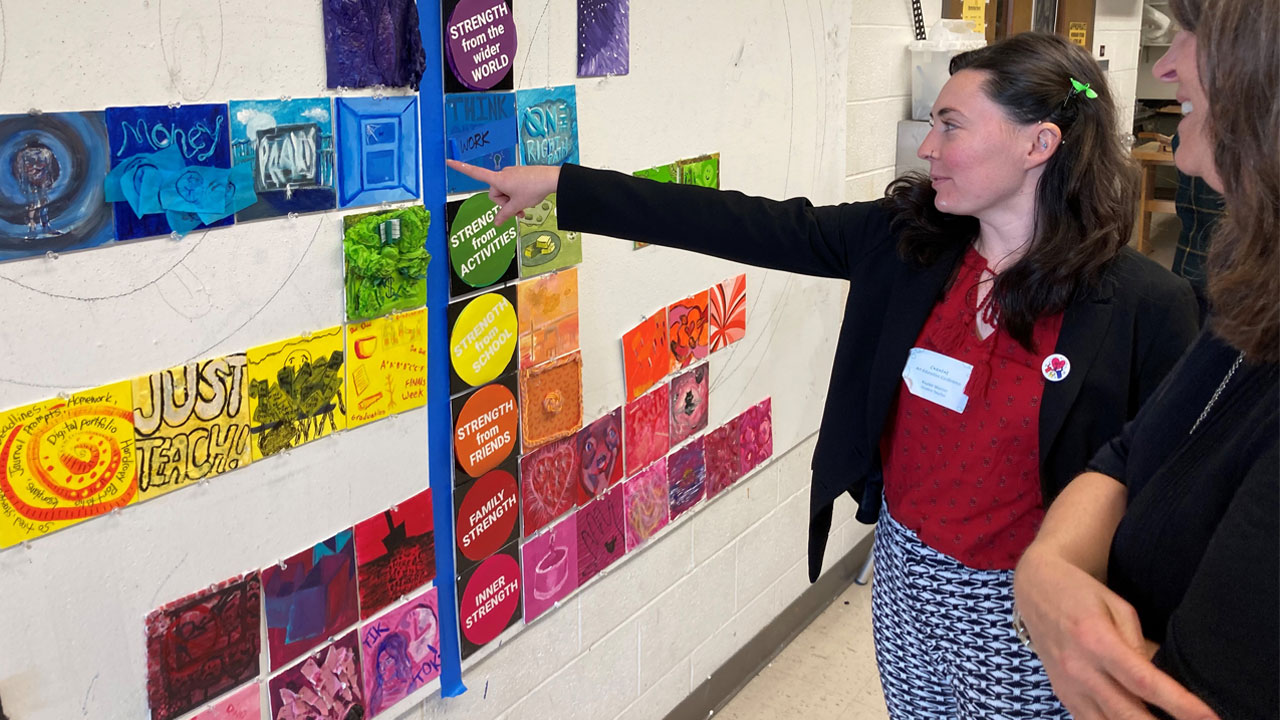Annual Art Education Conference
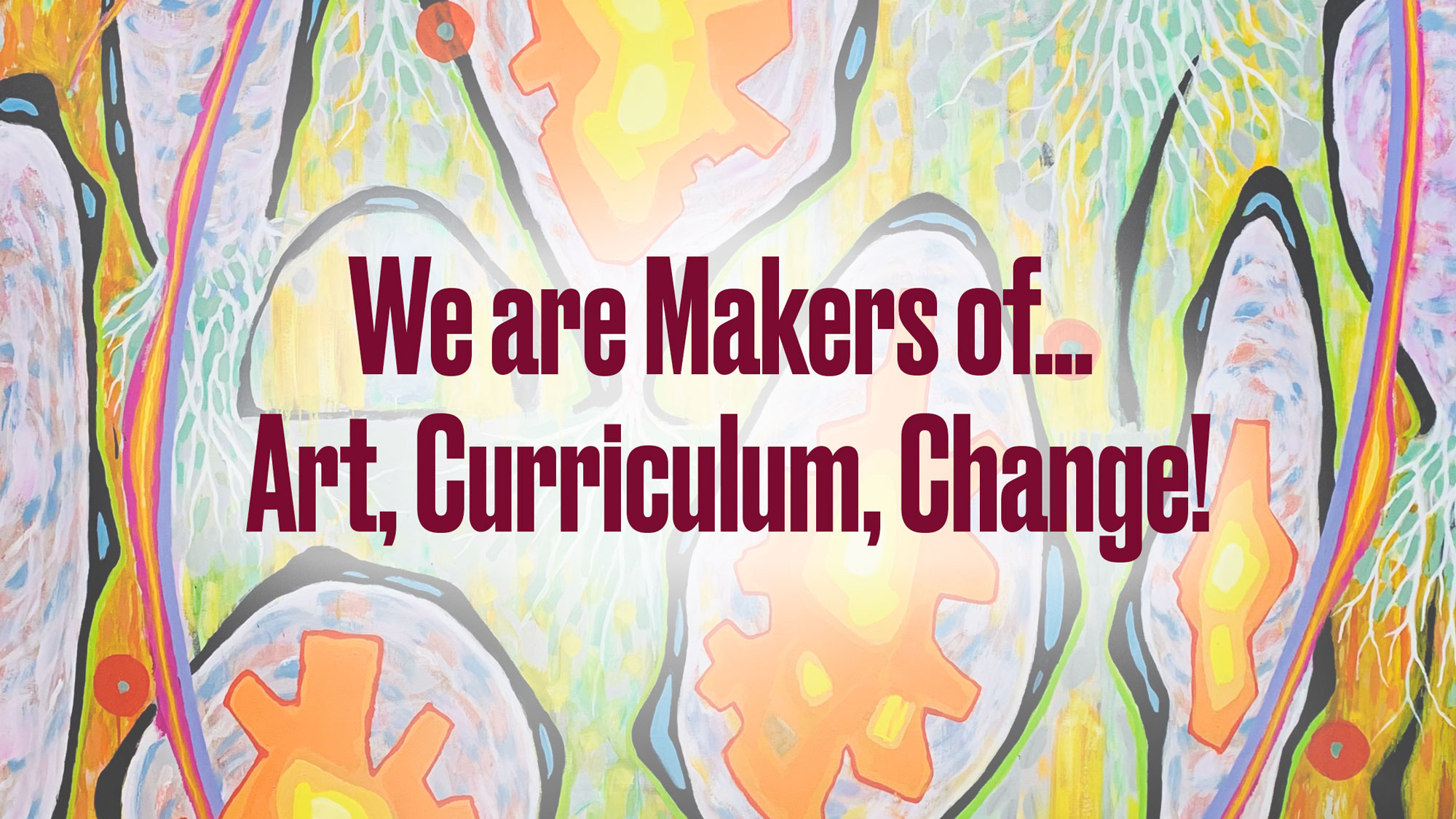
Friday, Nov. 22, 2019 | MSU Multipurpose Room
Please join us for the 81st Annual Kutztown University Art Education Conference: We are Makers of… Art, Curriculum, Change! where surprising connections will be drawn between the making of art and the making of
Relevant art instruction continues to be shaped by new art forms developed by artists, while artists continue to be shaped by experimentation. This relationship is heightened as teachers dedicate themselves to the creation of new knowledge (research) in their studio and classroom practices. This continual back and forth “conversation” between art-making, curriculum development, and instructional practices renders art education a unique site for teaching and learning. Through play, creative approaches to both making and curriculum emerge. Possibility for change heightens as we consider the impact of studio activities in concert with pedagogical approaches building meaningful experiences for all learners. These emergent forms hold forth the potential to influence ourselves, our students, and our society. How do we continue to “envision, express, observe, reflect, engage and persist and better understand art worlds (Hetland, et. al., 2007; 2013)?”
Please come and contribute to this day devoted to MAKING-as-practice and MAKING-as-opportunity for
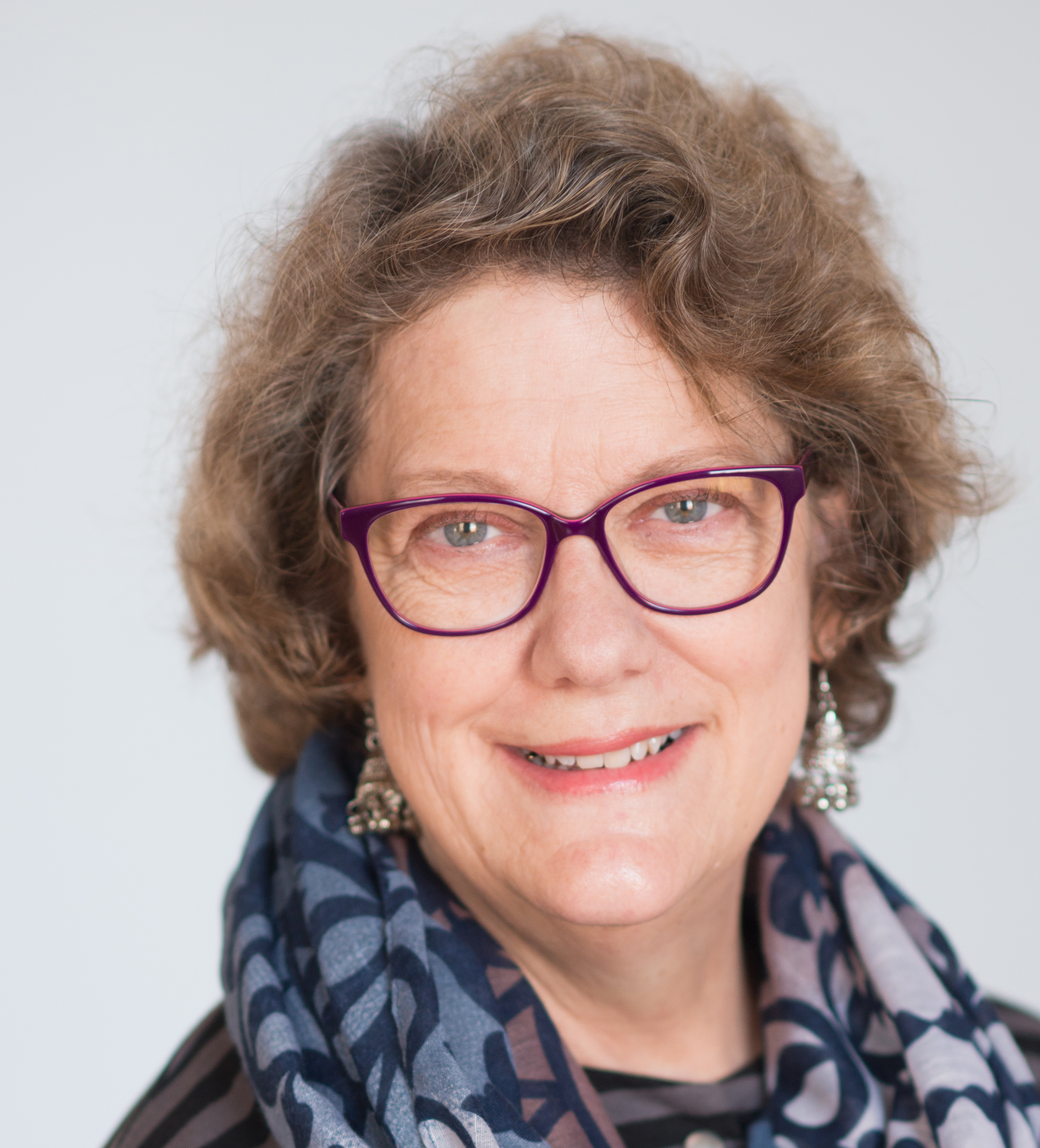
Teaching from the Contemporary with Studio Thinking
In this keynote address, Lois Hetland invites exploration into teaching Contemporary Visual Art, supported by using the Studio Thinking framework. When art teaching turns attention to helping students understand their art-making, viewing, and thinking as part of the discourse of contemporary art, it has implications for teacher planning, how we spend time in class, and assessment. The session addresses the questions: How can contemporary art practices make our classrooms more authentic? How can the Studio Habits and Structures help that? And can assessment help us teach students to think and act in ways that contemporary artists do? Together, we will watch segments of artists featured on Art21, analyze the videos using the Studio Thinking framework, and brainstorm and share ideas for curriculum on topics related to these artists and videos, as Professor Hetland infuses suggestions and models for ways that Studio Thinking might support this process.
Studio Thinking in Practice Workshop
In this session, participants work through a model session of drawing instruction that is tied to contemporary art. The session models all four Studio Structures (Demonstration-Lecture/Teacher Presents; Students-at-Work, Critique/Talk about Art; and Exhibition/Sharing Art). It also focuses on a small set of Studio Habits of Mind while illustrating how all the habits “come along,” even when teachers focus on only a few. Professor Hetland will respond to questions that arise throughout the session.
-
Dr. Lois Hetland, Ed.D Bio
Professor and Graduate Coordinator in the Art Education Department at the Massachusetts College of Art and Design. Trained in music and visual arts, she taught elementary and middle school students for 17 years. She is co-author of Studio Thinking from the Start: The K-8 Art Educator’s Handbook (2018), and Studio Thinking2: The Real Benefits of Visual Arts Education (2013, 2nd Edition). Previously she was the arts researcher on an evaluation study through ABT with the Margaret A. Cargill Foundation (2016-17); served as evaluator of the Art21 Educators’ program (2010-2012) published in Rajan & O’Neal (2017) on Art21’s participatory evaluation; led an assessment initiative at MassArt that resulted in the first set of college-wide graduation goals (2009-2013); served as Co-Principal Investigator on a National Science Foundation quasi-experimental study of potential transfer from visual arts learning to geometric spatial reasoning (2008-2013); and co-led the Studio Thinking Network, a monthly online conversation among US and international educators who use the Studio Thinking Framework (2012-2014). From 1992 – 2018, she conducted research (1992-2000), was Founding Director of The Project Zero Classroom Summer Institute (1996-2005), and was a Principal Investigator (2001-2011) at Project Zero, Harvard Graduate School of Education. In addition to the Studio Thinking research (2001 – 2003), funded by the JP Getty Trust, she led research as a PZ-PI on a research and professional development project in Alameda County, CA, funded by successive US Department of Education grants (2003-2011); collaboratively conducted ten meta-analytic reviews with Dr. Ellen Winner analyzing the effects of arts learning on academic outcomes, funded by the Bryant Family Foundation (1997-2000); and served as Co-Principal Investigator on Qualities of Quality: Understanding Excellence in Arts Education (2005-2008), funded by the Wallace Foundation. Currently, she is a co-PI on a 4-year NSF funded project integrating art with the science of extreme weather: Cool Science: Art as a Vehicle for Intergenerational Learning.
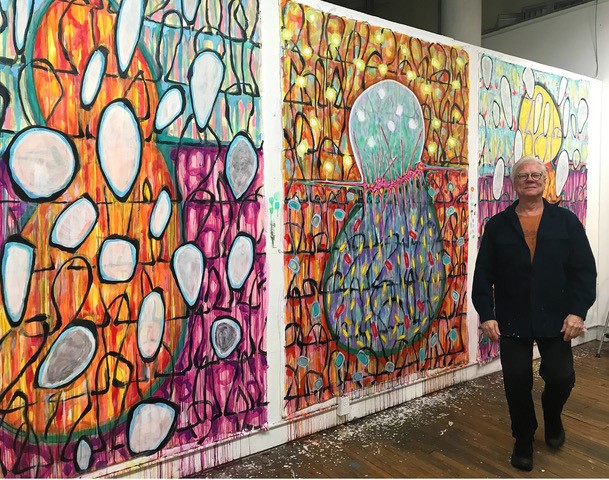
Ghost Stories: A tale of how useless objects facilitate useful work.
Paintings inhabit time, reference, and ambience in ways that are distinct from film and photography. Even realistic paintings hover about, like ghosts, unattached to their referents. Paintings speak from the past, resonate in real time, and lodge themselves within their viewers for future visitations. Paintings are never fully explicit, leaving out information, the absence of which haunts makers and viewers alike.
This detachment allows for painting’s habits, of control and expression, of design and improvisation, of vision, and of certainty, to migrate into other aspects of life. Because painting engages directly with perception, that liminal space between the outer and inner worlds, it provides opportunities for grounding what, for no better word, we might call one’s existential self. That grounding, in turn, provides a platform to negotiate other, more consequential roles, such as teacher, researcher, friend, colleague, department chair, etc. It is in this haunting presence of experience, abstracted from painting-as-end-in-itself and reapplied to other interests, wherein painting maintains its relationship to “useful” work and in turn the value that the arts hold for general education
-
Dr. John H. White Bio
John Howell White is Professor of Art Education in the Department of Art Education at Kutztown University. He earned his M.F.A. from Pratt Institute and his Ph.D. from The Pennsylvania State University. He is the author of Experience Painting, a Davis textbook for secondary art students. In 2012 he was named the National Higher Education Art Educator of the Year and in 2009 the Pennsylvania Higher Education Art Educator of the Year. He has conducted research and published extensively about the history and philosophy of art education. He has served as Director of the Higher Education Division of the National Art Education Association and Chair of the National Art Education Association’s Research Commission, the Department of Art Education, Kutztown University, and the Council for Policy Studies in Art Education. Dr. White taught secondary level for 13 years in Pittsburgh, PA and Los Angeles, CA.
He has recently shown at: The Works Gallery (2019), NYC; Archer Law Gallery 35 (2019), Philadelphia, PA; Provincetown Art Association and Museum (2018), Provincetown, MA; In-Liquid (2017), Philadelphia, PA; Jefferson Hospital (2017), Philadelphia, PA; , The Cotuit Center for the Arts (2016), Cotuit, MA; and Maryland Hall (2014), Annapolis, MD. His studio is currently based in Philadelphia.
White writes this about his most recent show Ghost Stories: Paintings inhabit the world in ways, through time, reference, and ambiance, that are distinct from the workings of film and photography. Even realistic paintings hover about unattached to their referents. Paintings then, like ghosts, confront viewers through their impact and haunt them through excluded information, they conjure an absence, which ferments attachments and invites future visitations. This group of oils, acrylics, egg temperas, and watercolors, are the result of this affective quality of paintings.
Workshop Presenters
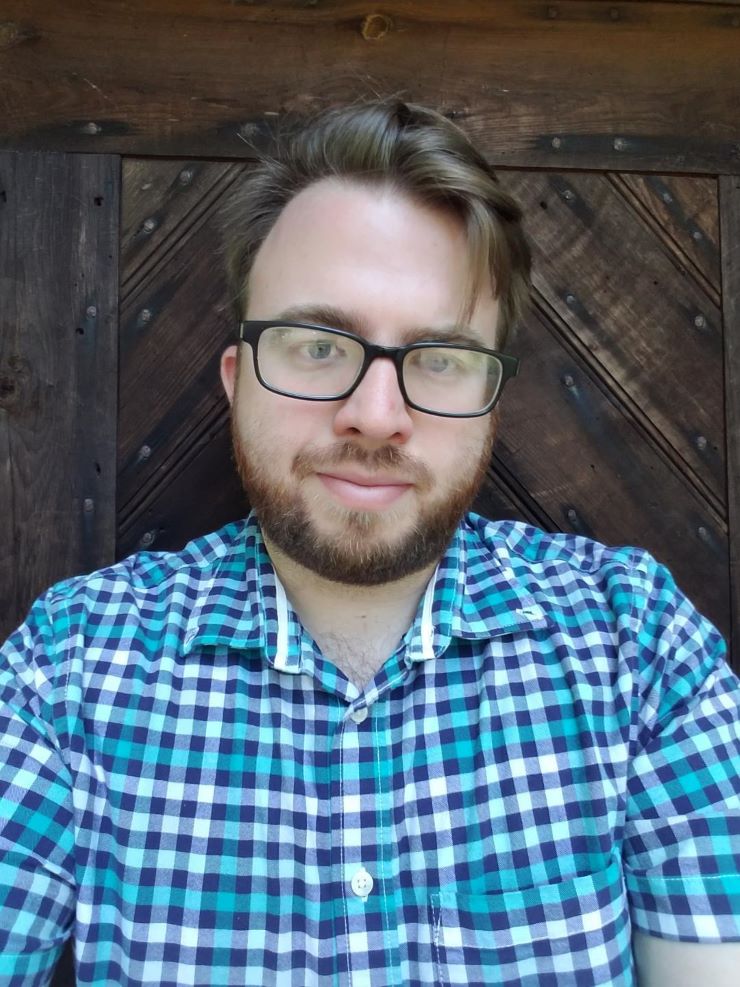
Tim Betz
“In the Studio:” Teaching About Art History through Renaissance Techniques
In this workshop, participants will learn about the value of teaching about art history through hands-on practice. Following a discussion of the methods and practices of the Renaissance Italian artist’s studio, attendees will learn how to make an egg tempera painting using period techniques.
-
Tim Betz Biography
Tim Betz is an instructor of art history at Kutztown University, where he specializes in art of the Spanish Atlantic World. He received his BFA in studio art from Kutztown University, a master’s in art history specializing in the Italian Renaissance from Penn State University, and a master’s in History specializing in Colonial Mexico from Lehigh University. He is currently working on his PhD on Colonial Mexico from Lehigh University, specializing in collecting and the formation of museums in the Spanish Empire. In addition to teaching at Kutztown, he is the Executive Director of the Morgan Log House, an eighteenth-century historic site in Lansdale, PA. He is particularly interested in learning about historical techniques of making, from the working methods of Renaissance artists, to Mexican feather-working and twentieth century sign writing. In addition to this, he produces his own art, tends bees, and brews beer based on historic recipes.

Leslie Friedman
Collagraphs: Let's Glue This!
Would you like to incorporate printmaking into your classroom, but don’t have a ton of equipment or extra money? Or maybe you have a press and ink already and want your students to break loose from the confines of traditional drawing. In this workshop, we will explore the many ways you can experiment with collagraphs in your classrooms. By using found materials for the textural qualities, we will cut and collage them to onto boards and ink them up, imprinting the surfaces onto paper. We will talk about some of the options and pitfalls of the process and the ranges of difficulty you can opt into depending on your set-up and students. We will look at some famous examples of collagraph and also make some plates and you’ll have the opportunity to print them in the shop.
-
Leslie Friedman biography
Leslie Friedman is an artist and educator who specializes in printmaking, sculpture, and installation. She has a BA in political theory from Brown University and an MFA in printmaking from the Tyler School of Art at Temple University. Friedman is an active player in the alternative gallery world. She founded the art collective NAPOLEON in 2011 which is comprised of ten artist and curatorial members with a gallery space in Philadelphia’s Chinatown. She is currently a member of Good Children in New Orleans and Baton Rouge Gallery in Baton Rouge. In 2014, Friedman completed a fellowship at the Center for Emerging Visual Artists and won the Fleisher Wind Challenge. Friedman attended residencies in Japan at Shiro Oni the summer of 2018 and MASS MoCA in the summer of 2019. Her work has been exhibited nationally and internationally with some highlights including solo shows at Space 1026 in Philadelphia, Millsaps College in Jackson, Mississippi, and the Delaware Contemporary in Wilmington. Political and social themes like identity, simulacra, stereotype, gender, and religion pervade Friedman’s work.
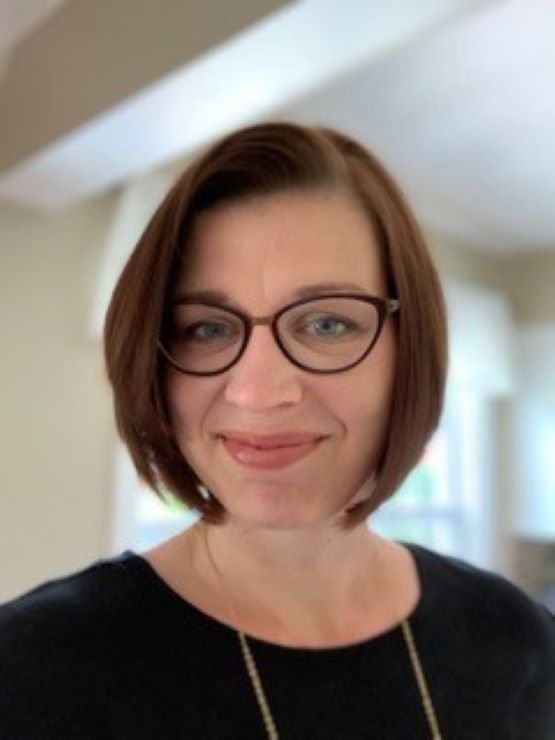
Leslie Gates
Book Arts for K-12 Classrooms: A Hands-on Workshop
This workshop is a place to engage in hands-on exploration with book making techniques and processes that are easily transferrable to K-12 classroom contexts. Participants will self-direct their exploration of binding methods, cover techniques, and non-traditional book forms. Through guided conversations, participants will consider various types of book structures and their applications to the classroom, including creating blank sketchbooks with students, assigning a book arts project, or even using books as an interactive assessment tool.
Dr. Gates’ own artist books will be available for participants to interact with and consider.
-
Leslie Gates Biography
Dr. Leslie Gates is an Associate Professor of Art Education at Millersville University of Pennsylvania, where she teaches undergraduate and graduate courses and supervises teacher candidates. In 2017, Leslie was named the Pennsylvania Art Educator of the Year. Leslie lives in Lancaster, PA with her husband and two children.
Leslie’s artist books and text-based sculptures deal with a range of issues related to sacred objects. Her work, which often explores the question of how something is rendered sacred, asks the viewer to consider the sacred in everyday lived experiences. Her books elevate experiences to sacred memory: discarded fuzzies from her daughter’s blanket memorialize the daily liturgy of putting children to bed, a tragic experience as a Title IX reporter yields work about the sacred nature of confidentiality, and an altered book calls into question sacred truths of teaching in the 1880s. More recently, Leslie has expanded notions of the sacred in work that addresses a number of contemporary conundrums.
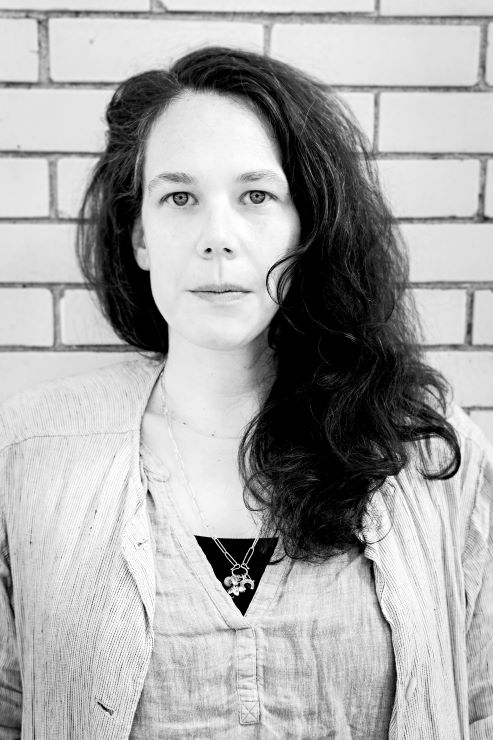
Janna Gregonis
Kaleidocycles and Radial Symmetry
A kaleidocycle is a paper-folded model connecting 6 tetrahedra on opposite edges into a moving object. Working with the laser cutter in the IDEA studio students will learn how to create a file and prepare it for a laser cut paper kaleidocycle. We will discuss radial symmetry and how you can take this into your classroom. Building the form will be taught both with pencil and paper and with Rhino and Illustrator programs. Students will receive a digital file of serval versions of kaleidocycles at the end of the workshop.
-
Janna Gregonis Biography
Janna Gregonis has twenty years of experience as a jeweler and educator. She is a studio artist and has taught at the 92nd Street Y (NYC), Peters Valley (NJ), Kutztown University (PA), St. John’s University (NYC), Penland School of Craft (NC). Exhibitions include: Munich Jewelry Week (Germany), Milton J. Weil Gallery (NYC), Velvet da Vinci (San Francisco) and she is in the collections of: Museum of the Brazilian Object (Brazil) and Fleur Bresler (US). Janna has also spent many years working in the design world at moss and the Cooper Hewitt National Design Museum.
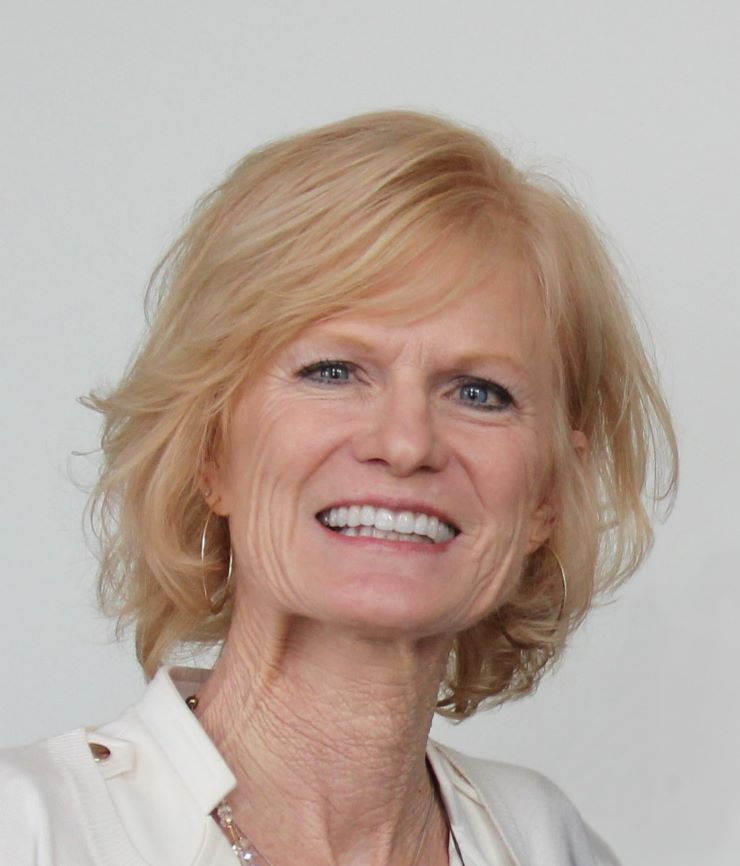
Delane Ingalls Vanada
Layers of Materiality, Layers of Identity: An A/r/tographic Exploration
Reflective and reflexive practice leads to passionate and powerful teaching—especially when reflection is enacted in social, artistic practice. Exemplifying our personal inquiries as teacher-artists can also inspire and motivate students in [DIV1] a culture of living inquiry. [DIV2] This workshop will provide a hands-on exploration that addresses our layered selves, inspired by a/r/tography—a type of practice-based research that merges the multiple roles of artist, researcher and teacher. It will promote dialogue about the realities of remaining practicing artists in the flux of current educational realities. Also learn about ‘Inquiry to Practice,’ a working group of art educators who came together to bravely ask questions and explore social issues, themes, and ideas arising out of teaching experiences, leading to a collective exhibit of their art-based research. Typical of a/r/tographic inquiry, we will practice reflective, recursive, and reflexive, and responsive skills toward the goal of creating new knowledge and change.
-
Delane Ingalls Vanada Biography
DELANE INGALLS VANADA, PH.D.
Prior to teaching at the Kutztown University, Dr. Ingalls Vanada has been an assistant professor of art education at University of Florida, Boston University, University of North Carolina at Charlotte (UNCC), SCAD, and Rocky Mountain College of Art and Design. She was the founding director of Art Connects!, a contemporary art integration symposium, and Inquiry to Practice, a working group of K-20 artist/teacher/researchers who engage in arts-based research and link theory to practice.
Her research focuses on instructional approaches and environments that enhance individual’s thinking, learning mindsets, and creativity in the arts; innovative methods for teacher preparation, including design thinking; and a/r/tography. Delane has published her work in journals including International Journal of Arts Education, Arts Research International, and Journal of Art for Life. She has conducted educational research in Finland and Denmark and presented her work in the United States, Greece, the United Kingdom, and Norway. She holds a Ph.D. from the University of Denver, an M.Ed. in Curriculum and Instruction from Lesley University, and a B.S. in Apparel Design, Illustration and Technology from Purdue University. In 2004, Delane received NAEA’s Elementary Educator of the Year award for the Pacific Region.
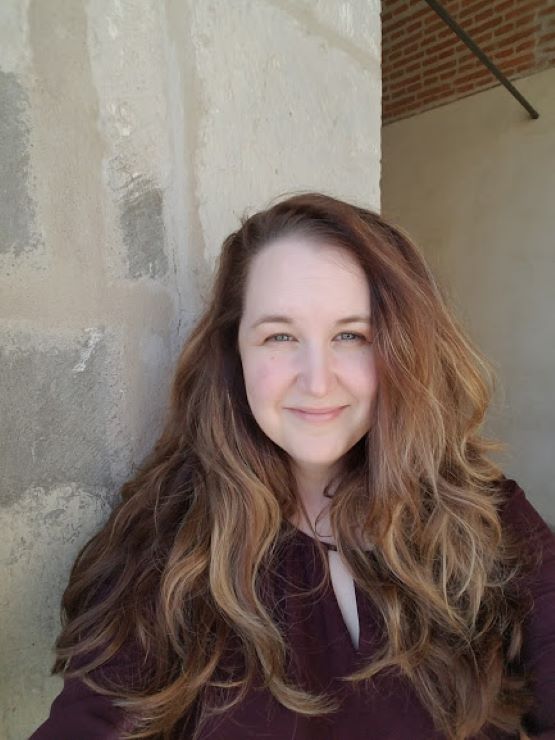
Kachina Martin
What is old is new again … Embroidery and Stitched Surface Design Basics
Embroidery is not just for Grandma … it is fast becoming a hip and fashionable way to embellish and personalize clothing. This workshop will teach you the basics of 5 simple stitches – running stitch, backstitch, chain stitch, couching, and the French knot – as well as offer resources for further investigation for you or your students using both traditional and contemporary examples. We will discuss ideas around the slow fashion movement and examples of other needle arts such as boro and sashiko will be addressed. No previous experience is necessary …
-
Kachina Martin Biography
Kachina Martin is a nationally recognized fiber artist who teaches studio art and art history at Muhlenberg High School. Her work was included in the Lark publication 500 Felt Objects and referenced in Uncovering Fashion: Fashion Communications Across the Media. She earned a B.A. in English and French with an Art History minor at Albright College; she received her Master’s in Art History from Temple University. She is currently completing her MFA at the University of the Arts. In addition to her work as a public educator, Kachina has also lectured at St. Francis University, Albright College, La Salle University, Philadelphia University, and Temple University. Kachina has participated in numerous educational travel programs, enabling her to study in Europe, Japan, Turkey, Bahrain and Qatar; she will be returning to Kyoto this summer with the National Consortium for Teaching about Asia (NCTA) to further her studies in textiles. Kachina maintains a studio at the GoogleWorks Center for the Arts, and you can see her work at www.kachinaleigh.com.
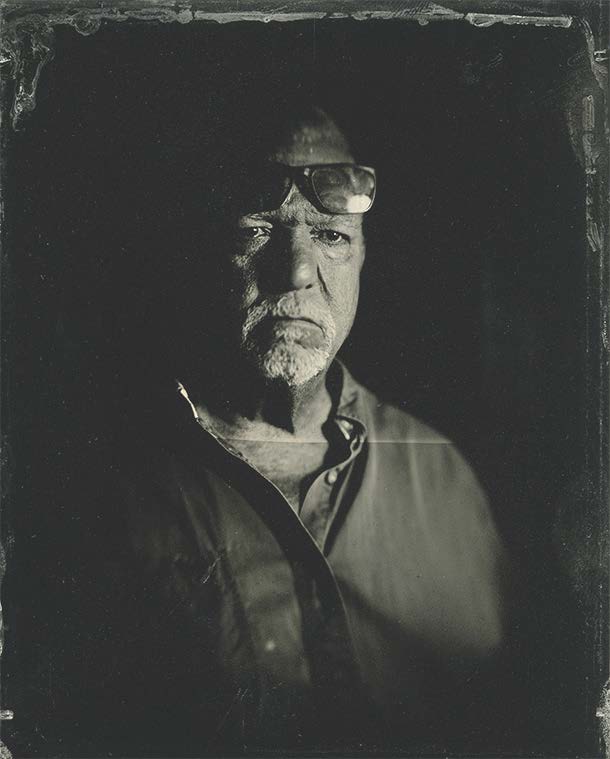
Rick Salafia
Navigating Cultural and Environmental Creative Problems
Our social and environmental conditions influence our creative behavior in both conscious and unconscious ways. In this workshop you’ll learn how to navigate the situations that restrict the way you create. If your practice (or your teaching) is in need of fresh ideas and insights bring your thorniest creative problems to this fun and exciting workshop.
-
Rick Salafia Biography
Rick Salafia received his BFA from the University of Rhode Island and his MFA from Rutgers. He has taught at Lehigh University, Carleton College, and Bucknell University. He is a sculptor, photographer, videographer and woodworker and teaches Foundation Design, Digital Media and Graduate Studio classes at Kutztown University. His work has been exhibited nationally and is in the collection of The Museum of Contemporary Art in San Diego. He has received a Pollock Krasner Foundation grant and a Pennsylvania Council on the Arts Fellowship
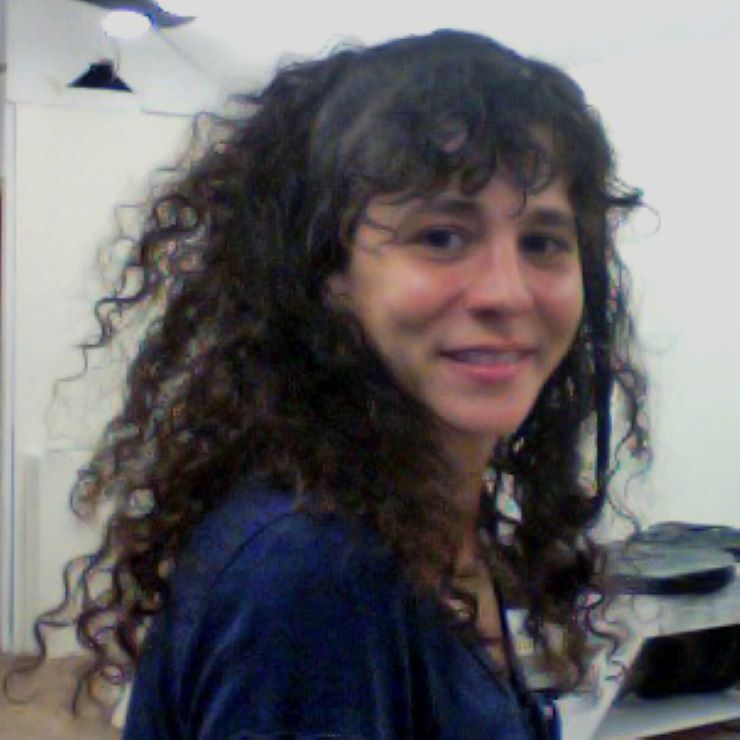
Gwendolyn Yoppolo
Making Room for the Unknown: Open-Ended Prompts in the Ceramics Studio
As artists engaged in a transformative process of making, we follow our research into surprising areas, and we respond to our materials as our ideas begin to manifest, ending up in a new place. When we are working to give form to the intangible within ourselves, we might not know where we will end up. As educators, we create such spaces of uncertainty for students: where they can welcome the unknown, try things and fail, be vulnerable and open, and eventually find their authentic artistic voices. In this workshop, we will articulate our growing edges and research questions, then experiment with hand building techniques, such as pinching and pulling or building from bits, to create personal and contemporary forms. We will focus on creating meaningful experiences for learners by using open-ended prompts that encourage them to develop their own questions to ask, problems to solve, and designs to manifest.
-
Gwendolyn Yoppolo Biography
gwendolyn yoppolo uses words, ceramic objects, and food to stretch boundaries and transform perception. She creates kitchen- and table-wares that use the physical experience of hunger and satiation to allude to larger issues of human desire and relationship. Her visionary designs challenge us to rethink the ways we nourish ourselves and others within contemporary food culture. She earned an MFA in Ceramics from Penn State University, an MA in Education from Columbia University, and a BA in Sociology from Haverford College. A passionate educator, writer, and researcher as well as a maker, gwendolyn yoppolo is currently serving as Assistant Professor of Ceramics at Kutztown University. Her writing can be found in Studio Potter, Pottery Making Illustrated, and Passion and Pedagogy.
Conference Schedule
7:30-8:00 Registration in the Student MSU 218
8:00-8:30 Introductions
8:30-10:00 Keynote: Dr. Lois Hetland and Studio Thinking in Practice Workshop
10:00-10:45 Break for purchasing books and book signing
10:45-11:30 Keynote: Dr. John White
11:30-12:00 Questions for Keynotes-Dismiss for Lunch
12:00-1:15 Lunch & Award
12:45-1:30 Student Roundtables
1:30-3:30 Breakout Hands on Workshops
Break as Needed-Coffee & Tea in the Lobby
3:30 Conclusion of the Conference







